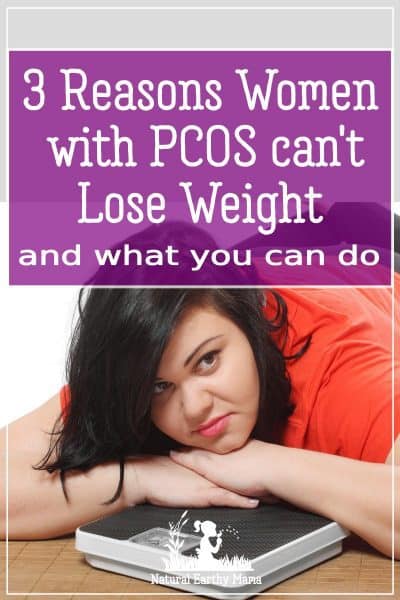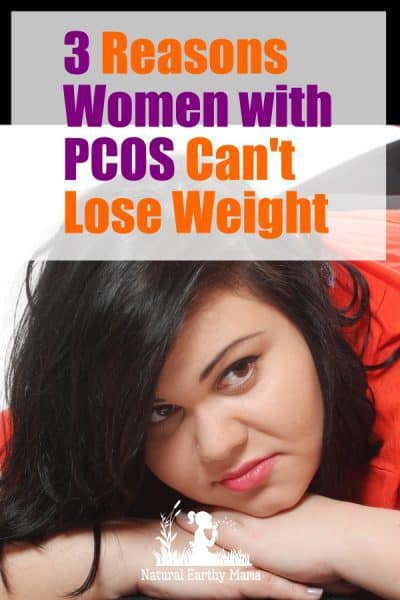 If you are a women that has been told that you have PCOS, you will probably also have been told by your doctor that your only options for management are weight loss, and going on the pill.
If you are a women that has been told that you have PCOS, you will probably also have been told by your doctor that your only options for management are weight loss, and going on the pill.
What they failed to tell you is that as a woman with PCOS, you are likely to struggle with weight loss for the rest of your life.
Please read: This information is provided for educational purposes only and is not intended to treat, diagnose or prevent any disease. We encourage you to make your own health care decisions in partnership with a qualified health care professional.
This post contains affiliate links, this means at no extra cost to you, we make a commission from sales. Please read
our Disclosure Statement
Losing weight for women with PCOS is so difficult in some cases that many feel that it is totally futile and they end up giving up on the dream of being healthy.
Overweight or obese women with PCOS are seen by society as greedy, lazy and without self control.
The reality is I can guarantee that this lady had tried every diet under the sun, she probably eats less than you, and has probably tried exercising till exhaustion more than once.
And you know what? She is probably heavier now than she was when she started.
Don’t miss my 6 part video series on this topic here.
How do I know this?
It was me.
It was my sisters.
It was my friends and colleagues.
There are some underlying reasons why women with PCOS cannot lose weight and I am here to tell you that you CAN lose weight successfully with PCOS!
3 Underlying Reasons Women with PCOS can’t Lose Weight
1 Insulin resistance
We will start right at the beginning. What is PCOS. Pcos is commonly diagnosed by either a scan showing multiple cysts on the ovary, or by a blood test showing low progesterone and high aldosterone/testosterone. Or both of these.
But this is really just the symptoms.
The underlying cause of PCOS – insulin resistance
Under PCOS symptoms is an issue with insulin resistance. When your body is under the ongoing onslaught of high insulin levels, stemming from a high carbohydrate diet, your body eventually becomes insulin resistant to protect itself from being overfilled with sugar.
These high levels of insulin also act as pro-inflammatory chemicals – this inflammation eventually leads to the internal damage that is responsible for the heart disease, cancer and diabetes that women with PCOS are significantly more prone to developing.
The high insulin levels also act like testosterone on some cells causing poor egg and breast development, male pattern hair growth, scalp hair thinning and larger muscle development.
Insulin resistance and non-alcoholic fatty liver disease
The high levels of sugar and particularly fructose in the diet can lead to non-alcoholic fatty liver disease. This is becoming so bad in western society that people are needing liver transplants for it!
If you have been told some of your liver enzyme tests aren’t good, or are slightly deranged, you need to take that as the massive warning sign that it is, and get that sugar out of your life.
The good news about fatty liver is that it will reverse very quickly on a low carbohydrate diet, presuming you get started before the permanent scarring occurs.
Insulin resistance is the foundation of most of the chronic, deadly illnesses that western society is plagued with. PCOS is only one of them. But there is no doubt, insulin resistance is the key cause of PCOS.
If you are insulin resistant and still eating carbs, your weight will not permanently shift because insulin is the gatekeeper to the fat cells. When you are insulin resistant, your insulin levels are higher than a non-resistant persons. This means there are even more guards on the door stopping your body from accessing that fat store.
2 Poor Diet advice – low fat + high carb
Of course, to get your symptoms under control, you will have been told to lose weight.
Sadly the vast majority of the advice on weight loss are based on two old, and shown to be inaccurate ideas.
1 – Low fat, high carb
2 – Less is more – the less you eat the more you will lose
The problem with low fat, high carb is multifaceted with PCOS.
The carbs simply stimulate the release of more insulin, so you will not be able to access the energy stored in your fat cells.
Being low fat, it will not be a very satisfying or filling way of eating, and you will feel hungry all the time.
You may get the advice to eat 6-7 times a day “to keep your blood sugars stable” the reality is that all this does is keep that insulin level high all day, and never gives your body a rest.
With a low carb – high fat diet on the other hand, you will naturally find that you are not as hungry all the time, and that you are able to only eat 2-3 times a day without being starving hungry all the time. This gives your body a chance to lower the insulin levels and then suddenly you can access your fat stores!
RELATED POST: Ultimate Guide to PCOS
Less is not more (within reason)
I know you have tried all the low calorie diets around, I know I have. And not only did I feel hungry and tired all the time, but eventually my body would wise up, and I would start piling on the weight again.
This happens because your body is aware that you are starving, those low calorie days eventually spur your body on to lowering your basal metabolism, which really means you can suddenly live and gain weight on less and less calories.
This was a great idea when we experienced famines often. The problem is we aren’t in a famine, and as an overweight person, we spend our lives having to eat less and less to not gain weight.
One of the most effective ways of getting your body to access and use its own fat stores, and then once it has realised that it is not starving, it will actually rev up it’s metabolism again is a 3 pronged attack.
1 Start a ketogenic diet and wait for your body to build the extra mitochondria that it needs to live well from fat as a fuel source
2 Once your body is adapted, reducing your “eating window” or the number of hours in a day that you eat. Many start by moving breakfast further and further back until they only need 2 meals per day
3 Start intermittent and extended fasting. This is so different to starving yourself, and if you have had a bad relationship with this in the past, I urge you to get help attempting to fast. Fasting is not about depriving your body of food or fuel.
Once you are keto adapted, your body will simply access its own fat as fuel and you will very seldom feel hungry during a fast. The benefits of a fast include allowing your body to break down spare and diseased tissues, as well as giving your body a rest from processing food. When done in a healthy, respectful fashion, fasting is a powerful tool for women with PCOS.
3 Eating too much Dairy
There is a strong link between dairy intolerance, insulin resistance and PCOS.
Generally butter is fine, but most cheese, milk and other dairy products will spike your insulin levels.
Seeing as we are trying to stop those insulin spikes and try and get a nice level, low amount of insulin consistently to get rid of the PCOS symptoms, cutting out dairy is a wise move.
It does not have to be a permanent change, but I do suggest that you cut it out totally for a month. After that you can try it on the odd occasion, and see if you react to it. Until your PCOS symptoms are under control I suggest you try and avoid relying on dairy for your diet.
RELATED POST: Inositol and PCOS
SO… what is a perfect diet for PCOS and weight loss?
You need a diet that is low carb, high in healthy natural fats and moderate in protein.
Women who are not too severe with their PCOS may have good success with Paleo or Low Carb High Fat. If you have had PCOS for a while, or you need to lose weight, a whole foods, dairy free ketogenic diet is the way to go.
The keto diet is the easiest and most effective way that most women with PCOS are finding rapid weight loss, that is sustainable as well as a reduction or complete reversal of PCOS symptoms.




